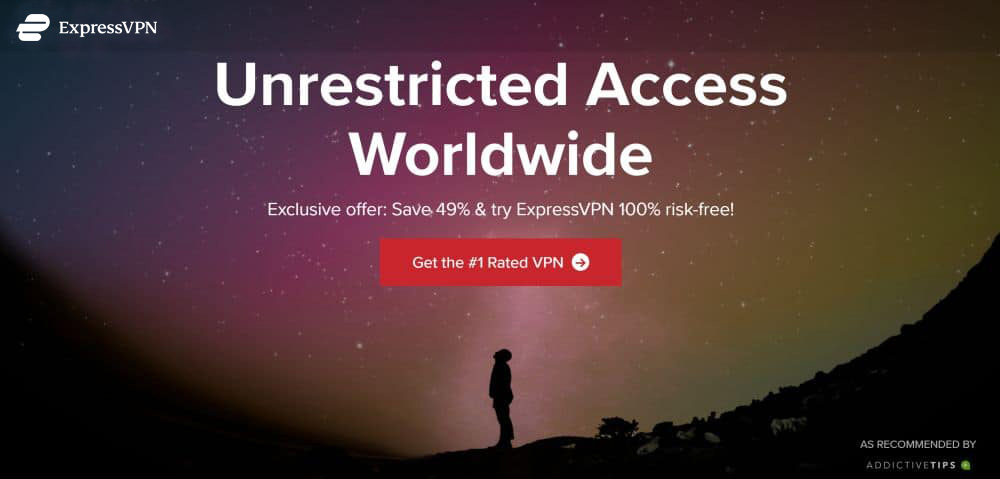Best VPN for DOTA 2: Our Top Picks for 2025
Veteran DOTA 2 gamers know all about lag, IP bans, and DDoS attacks, but luckily there’s a way to erase all those worries: by using a VPN. Today, we rate the top VPN providers according to their anonymizing features, connection speeds, and privacy policies. So equipped, you’ll be able to dodge your DOTA 2 ban in just a few minutes.
DOTA 2 is a great game – but great, competitive games inspire big problems, like high latency, lag, and packet loss. What’s worse, DOTA 2 invites DDoS attacks, which can be disastrous. As such, the use of a VPN with DOTA 2 has been a hot topic for a long time – could it help? Won’t it just cause even more lag?
Reduce ping and beat DOTA 2 IP ban with these secure VPNs:
-
- NordVPN – Best Gaming VPN – NordVPN’s massive server network and sophisticated encryption suite offer power users plenty of freedom to customize their VPN connection for optimal performance during DOTA 2 gaming sessions.
- Surfshark – Cuts the fat to offer a streamlined but extremely potent VPN gaming experience.
- ExpressVPN – Some of the absolute fastest VPN servers in the business, with built-in speed test.
- CyberGhost – No speedcaps or bandwidth limitations, dead-simple to install and use with colorful UI.
Although the use of a VPN with any of their games goes against Steam’s user agreement, it’s often the best option for many players having these problems. With a VPN, you can choose a server that’s nearby to reduce your ping, or choose one that’s in an entirely different geological location that you wouldn’t normally have access to. In this guide, we’re going to show you how we chose the best VPNs for DOTA usage, give you that list, and discuss the “how to” of using a VPN with DOTA 2. Finally, we’ll provide some background on why a VPN is so useful for optimizing your DOTA 2 experience.
How to choose the best VPN for DOTA 2
There’s a lot of information available on VPNs – and a lot of VPNs to sort through. But when researching VPNs to use one for DOTA 2 specifically, the field gets even narrower, especially if you have a “measuring stick” against which you can hold each VPN you look at. Here’s the criteria we used to determine which VPNs were best for DOTA 2:
- Ample speed – Since latency is such a big problem in DOTA 2, the speed of the VPN has to be considered first. You need a high-speed connection, zero bandwidth restrictions, and no throttling.
- Strong encryption – Next comes encryption. VPNs provide security by sending your data through an encrypted tunnel. All the VPNs we considered had to have 256-bit AES encryption – top-shelf stuff. They also needed to have multiple encryption protocols to choose from and other features, like DNS leak test, an automatic kill switch, and anti-DDoS protection.
- Large network size – To ensure you can always find a high-speed server quickly, you need a VPN with a robust, widespread network consisting of many servers. This way, you can get online with a fast node in just about any geological area you want.
- Wide device compatibility – The VPNs we considered had to provide support for a wide array of software and devices, like Windows, Mac, and Linux, as well as mobile devices.
- Zero logging – This might seem like an arcane consideration, but it is vitally important to ensure your VPN provider doesn’t keep any tabs on your activity or personal data when using its service. Otherwise, these logs can (and probably will) eventually be used to identify you.
The best VPNs for DOTA 2
With all that said, here’s our list of the best VPNs for DOTA 2:
1. NordVPN

NordVPN has a truly massive network. At more than 5,500 servers in 59 countries – and always growing – they’re the biggest service provider in the industry. NordVPN isn’t just fast, though, they’ve got speed and specialty servers, too. One of these specialty servers is perfect for gamers, too, providing extra Anti-DDoS protection. Some of the others include Onion over VPN, Double VPN, and Obfuscated servers. Advanced settings like these help make NordVPN one of the most reliable VPNs for bypassing the toughest firewalls in the world, including the Great Firewall of China, enabling you to get your game on anywhere in the world.
And speaking of security, NordVPN’s 256-bit AES encryption would take millions of years for the world’s strongest supercomputer to crack. They have one of the most complete zero-logging policies in the industry, and since they’re based in Panama, they aren’t part of or beholden to the surveillance agreements of larger governments. They’re also virtually immune to takedown requests.
With NordVPN, you get ease, too – like a graphical server map, which makes choosing a VPN in another geo-location a cinch. You can use NordVPN on just about any device, including less-common ones like RaspberryPi, and ad optional security toggles for Windows, Android, and Mac that block ads and malware.
Read our full NordVPN review.
- Optimized servers for unblocking Netflix
- Mind-boggling number of servers
- Allows up to 6 devices to be connected at once
- No logs and encrypted connections for total privacy
- Great support (24/7 chat).
- Refund processing can take up to 30 days.
2. Surfshark

When you’re in the heat of gaming, the last thing you want is an intrusive VPN app that slows your rig down. Surfshark knows this, and has cut the fat in every way possible. Just one look at their UI tells you they’ve succeeded, with simple no-BS server lists and an uncluttered advanced settings panel easily displaying this VPN’s full functionality. It’s snappy, responsive, and super lightweight on any platform.
Moreover, Surfshark has gotten rid of useless, outdated tunneling protocols you’ll never use in favor of OpenVPN and the cutting-edge WireGuard for maximum performance. And, with the 256-AES-GCM encryption cipher being the most advanced currently available, you’ll get high security without all the extra overhead.
Connect to any of over 800 servers located in 50 countries worldwide to easily skirt your IP ban, or spoof into foreign servers. If you’re trapped behind some crazy government censorship, Surshark automatically deploys either obfuscation or their NoBorders mode to sneak you through.
Zero logging, unlimited connections, and low price; what more could a DOTA 2 gamer want?
- Robust servers blast through geoblocks to access your favorite streaming sites
- Diskless server network ensures you leave no trace behind
- Accepts cryptocurrency payments for enhanced anonymity
- Absolutely no logging of connection data, IP addresses, bandwidth used, or traffic
- Responsive customer support available 24/7.
- Server network is not nearly as expansive as major competitors
- Apps don’t allow for much manual fiddling for power users.
Read our full Surfshark review.
3. ExpressVPN

ExpressVPN offers buffer-free streaming, fast downloads, and seamless browsing. And with a 3,000+ server network across 94 countries, finding a high-speed connection for DOTA 2 won’t be a problem. ExpressVPN also gives you unlimited bandwidth, no speed caps or throttling, and zero restrictions on P2P networks or torrents. A built-in speed test can help you make sure you have the fastest connection available, too.
256-bit AES encryption over OpenVPN – military-grade stuff – keeps your data safe and secure, and helps you stay hidden from prying eyes. 5 total encryption protocols give you options to choose from so you can connect to just about any server and get through most every censorship firewall or geo-blocked content. And with a DNS leak test and automatic kill switch, your data will stay safe from leaks and accidental drops.
ExpressVPN offers a wide software availability, with support for Windows, Mac, and Linux, Android, iPhone, and iPod, browser extensions, as well as PlayStation and Xbox consoles and routers.
Read our full ExpressVPN review.
- Unblocks US Netflix, BBC iPlayer and other streaming services
- 3,000+ super fast servers
- No DNS/IP leaks found
- Strict no-logs policy for personal information
- Great support (24/7 chat).
- Max 3 connections simultaneously
- Slightly pricier than competition.
4. CyberGhost

CyberGhost is made with simplicity and ease-of-use firmly in mind. Right off the bat, they’re easy to install. On launching the app, you’re presented with 6 simple configuration profiles, promising the best settings for your use-case with a single click. These include configurations for surfing anonymously, unblocking streaming, protecting your Wi-Fi connection, and torrenting safely. Each profile gives you further toggles, which can block malicious websites, ads, and tracking, as well as compress your data, automatic HTTPS redirect, and extra speed.
CyberGhost has a network spanning over 5,900 servers in 90 countries, so fast and secure connections are always available. Unlimited bandwidth, zero speed caps or throttling, and high connection speeds, plus 256-bit AES encryption make this a well-rounded, reliable VPN. And with many software types supported, you’re also able to connect to 5 devices at once.
Read our full CyberGhost review.
- LOW PRICE: 6 EXTRA free months (79% off - link below)
- Great user experience and easy installation
- 7 simultaneous connections
- Strict no-logs policy
- Live chat support (24/7).
- Sometimes experiencing average speeds.
How to use a VPN with DOTA 2
So how do you actually use a VPN with DOTA 2? Easy – follow these steps to get connected with a VPN and start playing:
- Visit the website of the VPN provider of your choice (we suggest one of the links above). Go to their “plans” page, select a plan, and fill out the information requested.
- Once you’ve filled out the information and subscribed, download and install the service’s application to the device you want protected and used.
- Once installed, open the app and login with your VPN credentials.
- Most VPNs automatically connect to the fastest server nearby. If this fits your use-case (i.e. you don’t care about accessing DOTA servers out of reach of your physical location), then you’re set for the next step. If not, open the VPN’s server list and pick a server in the geological area you wish to connect to.
- Before continuing on to play DOTA 2, conduct a quick IP address test. Open your web browser and type ipleak.net into the address bar. This will take you to a page with a box near the top. At the top of the box will be a long string of numbers (your IP address). Below these numbers will be a country name (i.e. United States) – this is the country of origin for your IP address. If the country of origin name matches to the VPN server you connected to, then you’re securely connected and good to go. If not, you aren’t securely connected to your VPN. Return to your VPN’s server list and try again.
Why use a VPN with DOTA 2
DOTA 2 stands for Defense of the Ancients 2. It’s a 2013 sequel to the original game (titled simply, “DOTA”) that was released in 2003. It’s become extremely popular due to its unique features and the many social aspects to it. However, being incredibly widespread and with a massive player-base, it has its problems – especially latency.
Latency issues
In a game like DOTA 2, where fast moves are essential to victory latency can kill. Distant servers are blamed as the primary culprit, causing high ping times, but there are many factors that are involved in causing latency.
When you have a long route between you and the server, your data packets have to make multiple “hops” across many nodes. And if the server is at or above its max capacity, between the distance and number of players, your ping time skyrockets, causing serious lag.
Fixing latency problems
To prevent latency issues from happening, DOTA 2 advises its players to connect to the nearest server. This can be fine, but if you want to access a server on the other side of the planet, or just play with friends on a different server, you’ll experience lag. A VPN can help with this.
Normally, when you play DOTA 2 on a regular internet connection, your play will be affected by the traffic of your ISP. When traffic gets heavy or you’re using too much bandwidth, they’ll throttle your connection speeds. If you use a VPN, you’re traffic gets hidden from your ISP. Since your ISP can’t “see” your traffic due to your VPN’s encryption, they can’t slow you down. And if you connect to a fast VPN server, it also gets redirected through less congested routes, further decreasing your ping times.
Not only can you fix latency issues, you can also avoid matchmaking problems with a VPN. If you’re trying to play DOTA 2 with a friend but can’t get into the same queue because of high ping times – just connect to a faster VPN server.
Other reasons to use a VPN
There are many other things that a VPN can be helpful for with DOTA 2. Here are a few of them:
- Protect yourself from DDoS attacks – In a game taken as seriously as DOTA 2, DDoS attacks are a real threat, especially if you get onto the leader board. Since a VPN disguises your IP address, your personal connection can’t be located, flooded with traffic, and crashed.
- Access Steam while abroad – Some countries block access to Steam and other marketplaces. And, even if you can access them, if you want to make a purchase while abroad, if your IP address doesn’t match up with your home country, you may get blocked. Using a VPN can allow you to spoof your IP address to look like you’re back home and allow you continue to access and use the service.
- General cybersecurity – The internet isn’t a safe place. There are hackers and identity thieves, and there are those (ISPs, governments) who spy on what you do. Since VPNs encrypt your data – including your traffic and location – your online activities are kept the way they’re supposed to be: private.
Conclusion
Deciding whether to use a VPN to play DOTA 2 can be hard choice. And once you make it, figuring out which VPN will be best can be confusing. With this guide, we did our best to clear up any confusion so you can make an informed choice on which VPN to go with. And once you decide, you may find yourself wondering why it took you so long to begin with.
Have you used a VPN with DOTA 2? How did it go? Did it decrease your ping times and make the game more enjoyable? Tell us how it went – good or bad – in the comments section below.
If you need a VPN for a short while when traveling for example, you can get our top ranked VPN free of charge. NordVPN includes a 30-day money-back guarantee. You will need to pay for the subscription, that’s a fact, but it allows full access for 30 days and then you cancel for a full refund. Their no-questions-asked cancellation policy lives up to its name.
